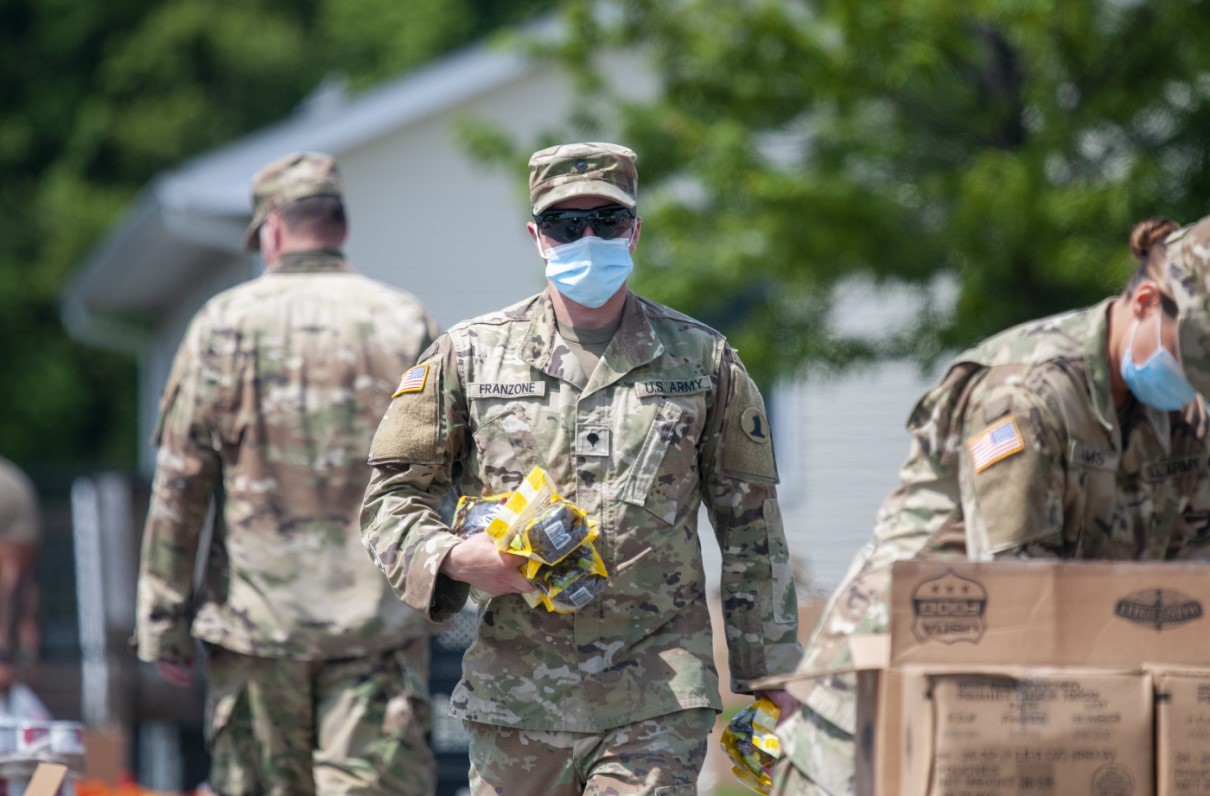The annual National Defense Authorization Act (NDAA) process is underway again, with the Senate bill leading the charge. Along with the many standard provisions focused on parity with the active forces, this year’s NDAA provides several opportunities to address some of the unique coronavirus-related challenges facing the National Guard and Reserve forces.
This year’s bill marks the first opportunity outside of a COVID-19 legislative package to address issues facing the tens of thousands of members of reserve component forces activated to assist with the coronavirus response and civil unrest.
[TAKE ACTION: Ask Your Lawmakers to Take Care of the Reserve Component in the NDAA]
The added risks of operating in an environment where a member is exposed to COVID-19 are being considered by the Senate Armed Services Committee, which included a mandate to pay hazardous duty pay at the rate of no less than $150 a month in its version of the NDAA. If enacted, this section would put hundreds of dollars into the pockets of servicemembers who responded to the virus.
Another section that made it into the bill text addresses the health care of servicemembers who responded to COVID-19 on Title 32 orders. When on Title 32, the federal government pays, but state governors maintain control. Title 32 is important for many benefits, but while the pandemic is still underway, this addresses an important question: How do we care for their health needs after a member is no longer activated?
This section requires the DoD to provide 180 days of premium-free TRICARE for National Guard members separating from a period of active duty related to the COVID-19 response; while this is a positive step, it does not provide health care coverage for the activated 7,500 reservists.
[RELATED: Your Benefits: Title 10 vs. Title 32 vs. the State]
In addition to these COVID-19 fixes, the Senate bill offers a section that would change the discharge document from the DD-214 to a “Certificate of Military Service.” This common discharge document would be given to any member who serves; at present, reserve component members only receive DD-214s under certain qualifying conditions. The new certificate would mark a positive step for the recognition of reserve component service.
Finally, a Senate amendment that could be added to the bill is a fix for the hazardous duty incentive pay (HDIP) proration for those who maintain a technical proficiency, such as jump pay. Despite needing to do the same work and make the same time commitment to maintain a technical proficiency as members of the active component, reserve component members receive prorated pay for their proficiencies. This amendment is based on a bill previously introduced by Sen. Joe Manchin (D-W.Va.), which MOAA covered earlier this year.
These positive steps reflect Congress’s understanding of the essential role the reserve component played in the pandemic response. Please act now and contact your senators about these sections that are good for the National Guard and Reserve and ask that they do all that they can to include the HDIP amendment.
Support The MOAA Foundation
Donate to help address emerging needs among currently serving and former uniformed servicemembers, retirees, and their families.

